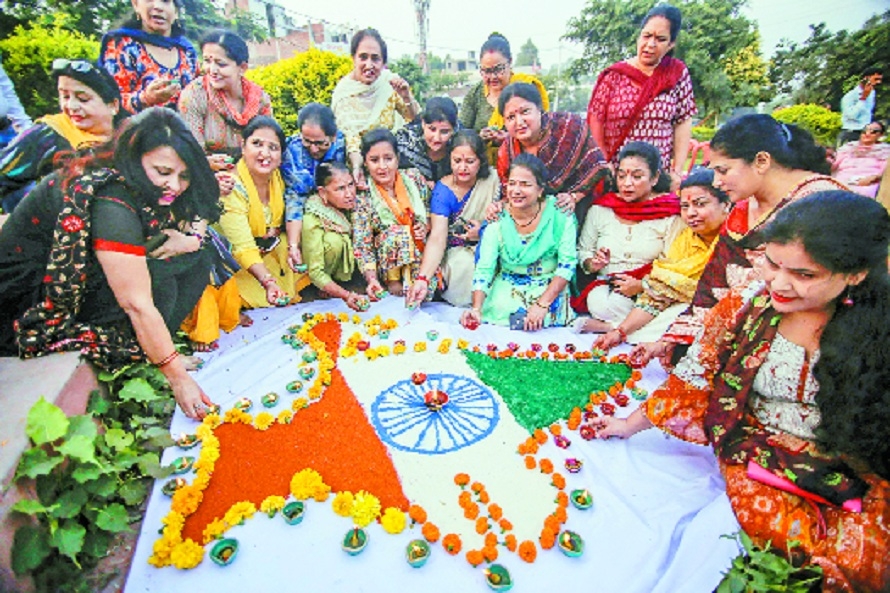J&K ‘state subjects’ equal to other Indians, won’t get preference: MHA
| Date :01-Nov-2019 |

Members of BJP Mahila Morcha light earthen lamps to celebrate Jammu and Kashmir transitioning from a State into two Union Territories in Jammu on Thursday. (PTI)
NEW DELHI :
Residents of the princely State of Jammu and Kashmir at the time of the State’s merger with the Union of India and their descendants are called state subjects and they used to get privileges over land and jobs in erstwhile State of Jammu and Kashmir due to Article 370 and Article 35A
THE Centre has declared omission of “permanent residents or hereditary state subjects” in two newly-created Union Territories — Jammu and Kashmir, and Ladakh — which came into existence on Thursday, ending their seven-decades-long privileges over land and jobs. In a notification, the Home Ministry announced a slew of measures to be applicable in the two new UTs that include many central laws hitherto out of bounds in the erstwhile State of Jammu and Kashmir due to its Special Status. “...There are references in the State laws that have been applied to the Union Territory of Jammu and Kashmir, and the Union Territory of Ladakh to the expressions ‘permanent residents’ or ‘hereditary state subjects’..., wherever they occur, shall be omitted,” it said.
Those who were residents of the princely State of Jammu and Kashmir at the time of the State’s merger with the Union of India and their descendants are called state subjects and they used to get privileges over land and jobs in the erstwhile State of Jammu and Kashmir due to Article 370 and Article 35A. The then ruler of the princely State, Maharaja Hari Singh, executed the Instrument of Accession on October 26, 1947, making it part of the Union of India.
The Home Ministry notification said that the references, by whatever form of words, to the “State of Jammu and Kashmir” or “Jammu and Kashmir” or “State” shall from October 31 be construed as “Union Territory of Jammu and Kashmir” or “Union Territory of Ladakh”, as the case may be. It said any reference in any existing law to the “legislature of the State or any House or Houses” shall be construed as references to the Legislative Assembly or Legislature of the Union Territory of J&K.